Sustainabilty
Our contribution to Sustainable Development Goals
The UN Sustainable Development Goals were established by all the United Nations member states with the intention of working towards a more sustainable and equal world. It calls upon companies to use innovation, technology, and creativity to address developmental challenges and opportunities that companies can have an impact on.
ECGA members review and revise their sustainability strategy on continues basis. Our sector wants to leverage opportunities and positive sustainability effects of the activities and the products and even more strategically and further reduce negative impacts.
ECGA secretariat has gathered the examples of actions undertaken by its members towards SDGs and divided them three categories: Environmental, Social and Governmental. Below you will see the general structure applied. If you wish to learn more about the concrete examples, please contact ECGA Secretariat.
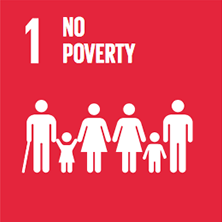
1
No poverty
While widespread poverty is not a major problem in Europe, the carbon and graphite industry’s role in fostering positive economic growth, job reation and skill development helps ensuring this will continue in Europe.
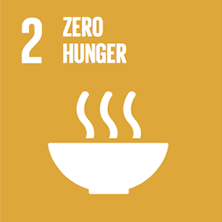
2
Zero hunger
Widespread hunger is not currently a major problem in Europe, but a growint population will soon require increased food production. Most of the machinery used requires carbon and graphite components in one way or another.
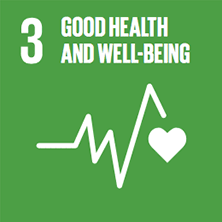
3
Good health and well-being
Safe and healthy working conditions are a top priority in the European carbon and graphite industry. Companies also frequently extend workforce health and well-being programmes to local communities and contractors, ensuring positive effects on people in the.

4
Quality education
While quality education is accessible to all European citizens, there is a need for wider society learning about the importance of carbon and graphite products. The sector provides a range of employment opportunities, invests in local traininigs or extends workforce educations and training to local communities and cotractors.

5
Gender equality
Most carbon and graphite companies in Europe have clear statments supporting gender equality, women filling visible leadership roles, processes for ensuring a safe workplace for women, as well as official processes for recruting and retaining female employees.
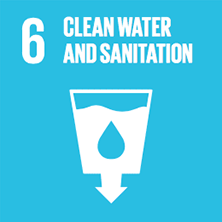
6
Clean water and sanitation
Carbon and graphite companies have a responsibility to ensure their operations do not result in contaminated water supplies or inhibit access to clean water. Sound water practices are regulated at the EU and national levels, and companies collaborate with local experts to accurately measure, analyse and test water supplies.
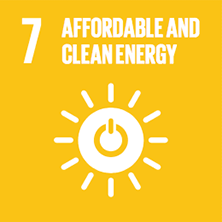
7
Affordable and clean energy
European carbon and graphite are raw materials needed for the products that produce clean energy, either as a direct component such as in batteries in cars or carbon brushes and carbon fibres in wind turbines for example, or as a constituent of other industrial processes, such as the production of silicon wafers or solar panels. Carbon and graphite companies across Europe are also working to run their operations more efficiently, using more clean energy sources and reducing their overall energy consumption.
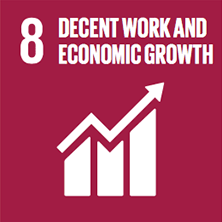
8
Decent work and economic growth
Carbon and graphite companies collaborate with governments and their supply chains to enhance broader economic development opportunities and invest in various ways to become economically, productive.

9
Industry, innovation and infrastructure
Carbon and graphite producers in Europe and their parent companies are global leaders in innovation. The sector is constantly developing stronger, more durable and more efficient materials for these purposes. The European raw materials industry innovation and high-tech developments also contribute to very important positive impacts on the European continent and globally.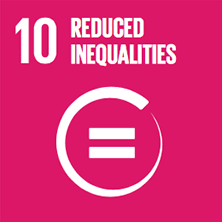
10
Reduced inequalities
The European Carbon and Graphite industry promotes diversity and is committed to achieving and maintaining a diverse and inclusive workplace.
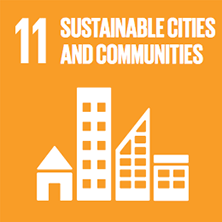
11
Sustainable cities and communities
The industry contributes to sustainable cities by supporting development of infrastructure.
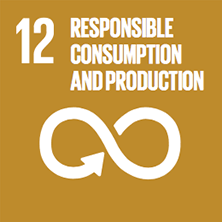
12
Responsible consumption and production
The European carbon and graphite industry has been contributing substantially for decades to the Circular Economy goals by providing industrial goods to recycle steel.
16
Peace, justice and strong institutions
The European carbon and graphite industry is a sector complying to the jurisdictions it is operating in. It is internationally trading and in transparent dialogue with its supply chains and customers creating trust and confidence. The European carbon and graphite industry is also supplying critical raw materials and products for the defense industry which is sometimes needed to keep peace.issues
TYPE OF ACTIONS
- A safe workplace with zero harm
- Safety culture, leadership
- Promoting diversity: committed to achieving and maintaining a diverse and inclusive workplace
- People development
- Local development
- Social responsibility
SOCIAL ISSUES
A safe and healthy working environment and promotion of labour rights are key priorities for us. The European carbon and graphite industry focuses on and invests in training and competence development of its employees, as well as promoting a culture of involvement, diversity, and equality.
• A safe workplace with zero harm
- Monitoring health and accident rates on a continuous basis.
- Continuous improvement of safety through automation and innovative machinery with higher safety records.
- Setting ambitious goals and striving for continuous improvement in EHS which include reduction of accidents, improved HS Management Systems, Risk Management Frameworks, Critical Hazard Management Systems, trainings, use of PPEs.
- Using the same EHS systems, tools and methods, and having the same expectation to EHS performance wherever we operate around the world.
- Companies apply strict occupational, health and safety programmes for all its employees and suppliers on site.
• Safety culture, leadership
- The focus of the corporate team is on involvement, knowledge, and information sharing, and on the management’s commitment to empower their employees in continuous improvement work through shared goals and tools.
- Engaging employees: enhancing performance and engagement through open communication, prioritizing the training, development and upskilling of employees.
• Promoting diversity: committed to achieving and maintaining a diverse and inclusive workplace
- Companies value gender diversity and aim to achieve a better gender balance year on year. The process industry is generally male dominated. Women are, however, increasingly expressing an interest in working in our industry as increased automation leads to less heavy manual work.
- Due to some companies’ growth in new world regions over the recent years, several initiatives have been implemented to ensure applicable training in their code of conduct and the principle of non-discrimination in this region.
• People development
- Companies have a proactive policy for continued professional development. Supporting the professional development of employees in order to retain them and help them to continue to grow and have a desire to attract new talents.
• Local Development
- Companies continuously try to strengthen their relations with local governments and the communities through proactive stakeholder engagement.
• Social Responsibility
- Companies have not only a legal but also a moral obligation to conduct their business in an ethical way and to contribute positively economically and socially to the communities and countries they are operating in.
- It is our obligation to provide safe jobs and make sure that the employees have decent and livable wages and a flexible work-life balance situation. In addition, we can influence the value chain through our partnerships, to make sure that our suppliers and customer also take this responsibility. Our most important tool is the code of conduct for business partners. We provide a secure and safe workday for employees and contractors.
- Companies therefore apply and respect local labor laws and rights.
- There is a zero tolerance for use of child or forced labour at our sites and we require that our suppliers and contractors uphold the same standard. Particular attention is given to those cases where suppliers are operating in countries where there are risks of child and forced labour.

